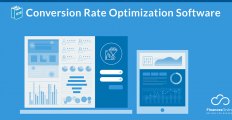In the very competitive realm of Software as a Service (SaaS), your most valuable tool is innovation. Every fresh tool, algorithm, or user interface improvement will help your company stand out. However, if your business isn’t adequately safeguarded, that same innovation also leaves it susceptible to copycat behavior and theft. Ensuring that your ideas, technology, and brand are safe from competitors wishing to replicate your work depends critically on intellectual property (IP) protection.
Protecting intellectual property for SaaS businesses goes beyond simply obtaining a patent or registering a brand to include developing a whole plan covering all facets of your technology and business. From software code to branding, this article will explore the several ways SaaS organizations could defend their intellectual property and provide practical advice on safeguarding the very basis of your company.

IP Protection Principles for SaaS Businesses
Intellectual property, or IP, is Simply said, intellectual property—that is, creations of the mind—inventions, literary works, symbols or designs applied in business. Your IP as a SaaS company consists not only in the code running your product but also algorithms, procedures, user interfaces, branding, and even client data models. IP protection aims to guarantee that these priceless assets stay yours, therefore granting you exclusive control over their use.
Why should SaaS companies value intellectual property?
Your product in the SaaS universe is your intellectual property. SaaS enterprises provide value via software housed on the cloud, unlike conventional corporations that could depend on actual goods or premises.
You don’t need a patent law firm to state the obvious – your competitive edge depends critically on your technology, ideas, even brand name. Strong intellectual property rights help to prevent competitors from readily copying your work, therefore exposing your company to income loss and less market share. Good IP protection guarantees that your company can keep developing and inventing free from the risk of infringement.
Conserving Software Code: Trade Secrets and Copyrights
Protecting the software code driving their platform is first concern for SaaS businesses. Though there are various legal paths for protecting software, two of the most often used ones are copyright and trade secret protection.
Copyright law provides the owner of a creative work—such as a software program—exclusive rights over its replication and dissemination. This means that, for SaaS businesses, the software code you produce is automatically safeguarded the instant it is written. Nonetheless, registering your program with the U.S. Copyright Office (or comparable foreign organizations) will help to increase your protection legally.
Particularly useful for guaranteeing that your source code, user interfaces, and documentation are not replicated or shared without your permission is copyright protection. Though it guards the exact code you create, copyright does not guard the underlying ideas or techniques. Trade secrets come in here.
Trade Secret Protection for Processes and Algorithms
Any company knowledge maintained in secret and offering a competitive edge is a trade secret. Trade secrets for SaaS businesses could be algorithms, customer data models, or special techniques meant to set your services apart from rivals. Protection of trade secrets depends mostly on keeping rigorous confidentiality. This implies restricting access to the secret material, applying non-disclosure agreements (NDAs) with partners and staff members, and acting to stop illegal access.
Trade secret protection mostly benefits from not expiring as long as the secret is hidden. Once the secret comes out, though—through a breach or reverse engineering—it is no more guarded. SaaS firms must so create robust security systems and use rigorous legal agreements to protect these assets.
Patenting SaaS Innovations: Timing and File Methodology
While trade secrets and copyright guard your software code and methods, patents provide defense for the technical ideas behind your SaaS offering. Usually covering 20 years, a patent gives the inventor exclusive rights to an innovation. Patents in the SaaS sector can guard original ideas, algorithms, and technical solutions that define your platform.
When should a SaaS company give patenting some tho₹ught?
Not every new software application is patentable. The innovation must be innovative, practical, and non-obvious if one is qualified for patent protection. This implies that little changes to a current method or routine aspect of your program are unlikely to be qualifying. Patenting such technology could be a wise action, nevertheless, if your SaaS platform employs a unique algorithm or a fresh approach of addressing a technical challenge.
For instance, your SaaS platform might be patentable if it employs a novel algorithm to customize user experiences or manages cloud infrastructure in an original manner. Patenting your invention guarantees that rivals cannot utilize like technologies without running afoul of the law.
Filing a patent application might be a difficult process for SaaS patent seekers.
Usually, it entails creating a thorough description of your invention together with technical details, schematics, and assertions of scope defining the patent. Working with an expert patent attorney is highly advised to guarantee your application is robust and covers all facets of your idea.
Besides, early filing of your patent application is crucial. Most nations grant patent rights on a “first to file” basis, hence even if someone else invented it first, whoever files the patent first receives the rights. Should you believe your SaaS platform comprises a patentable innovation, you should start the filing process right once to safeguard your idea.
Protecting Your Brand: Domain Names and Trademarks
Although SaaS firms mostly concentrate on safeguarding algorithms and software, equally crucial is brand protection. With your consumers, your company’s name, logo, and even product names are great assets that assist create awareness and trust. Protection of trademarks and domain names is absolutely vital for SaaS businesses in their whole intellectual property strategy.
After all, if trademark is misused your entire online marketing strategy can fall flat.
For SaaS companies, a trademark is a word, phrase, symbol, or design that sets their source of goods or services apart. Your brand name, logo, and even your product names can be copyrighted for SaaS businesses to make sure rivals cannot use like marks that would confuse your consumers. In the packed SaaS industry, where standing out is vital, trademark protection is especially critical.
Several benefits follow from registering your trademarks with the relevant trademark office (such as the U.S. Patent and Trademark Office). Not only does it provide legal defense should someone attempt to use a similar name or emblem, but it also grants national rights to your trademark. Strong trademark protection is essential for preserving the integrity of your brand in the SaaS environment, in which your offering is available anywhere.
Not only with trademarks but also with regard to domain name protection for SaaS firms.
Usually the first connection potential consumers have with your brand is your domain – that’s why web designers online are so obsessed in putting the best foot forward; so, safeguarding it helps to stop others from building websites that can damage your brand or mislead your audience.
Choose a domain name such that it complements your trademark.
Your domain name should ideally match your company or product name exactly so that consumers may easily locate and remember you. To avoid cybersquatting—when someone buys similar domain names to profit from the success of your brand—also think about registering several variants of your domain name including.com,.net, and.io.
Under the Uniform Domain Name Dispute Resolution Policy (UDRP), you could be able to contest someone registering a domain name like your brand. Legal procedures let trademark proprietors recover domain names registered in bad faith or violate their trademarks.
Handling Partner and Staff IP Ownership
Especially with regard to employees and business partners, one of the sometimes disregarded elements of intellectual property protection is making sure the ownership of your company’s IP is precisely specified. To realize their product, SaaS firms depend on groups of designers, developers, and partners. Clear agreements must be in place to prevent conflicts about who owns the intellectual property produced under partnerships or employment.
Usually, any intellectual property produced by staff members during their work comes under the ownership of the company. Employment agreements should, however, clearly state this, particularly if your team is developing bespoke software features that might be patentable or trade secret protected. Including particular language in employment contracts that give the business intellectual property rights will help to avoid possible legal problems later on.
Establishing secrecy and innovation assignment agreements is equally crucial for engineers and developers. These agreements guarantee that, should an employee create any proprietary codes, algorithms, or procedures while employed, they remain business property. An employee runs the danger of claiming ownership of important IP or using it at a future employment without these agreements.
Many SaaS firms establish or improve their platforms by working with outside designers, consultants, or developers via partner or contractor agreements. These circumstances call for a strong contract outlining who owns the intellectual property produced during the cooperation. Particularly if the cooperation produces a patented invention or unique software development, unclear contractual language can cause uncertainty or conflicts over ownership.
Make sure any agreement you have with outside contractors or partners has IP ownership assigned to your business. Incorporate non-disclosure agreements (NDAs) as well to guard any private information exchanged throughout the cooperation. Making sure these agreements are in place helps protect your company’s intellectual property and help you stay clear of expensive legal disputes down road.
Open Source Software and SaaS: Juggling Protection with Innovation
Because of its cost-effectiveness and cooperative development approach, open source software (OSS) has grown rather popular in the SaaS sector. Open source components are included into many SaaS systems to cut expenses and hasten development. Open source software does, however, create special difficulties with intellectual property protection even if it offers many advantages.
What are Open Source Licenses?
Open source software is distributed under several licenses, each of which has guidelines on how the program might be used, altered, and shared. Certain licenses, like the MIT or Apache licenses, are more permissive, allowing SaaS firms to include the code free from many constraints. Others, like the GNU General Public License (GPL), challenge commercial SaaS companies since any program that uses GPL-licensed code must also be distributed under the same license.
Review the license terms very carefully before including any open source software into your SaaS platform. Using open source code without thoroughly considering the consequences could put your business in legal hot water, including perhaps having to publish your proprietary software under an open source license.
Creating an open source strategy is crucial for SaaS businesses mostly dependent on open source software to clearly control OSS consumption and compliance. Maintaining an inventory of all open source components used in your product, tracking the licenses connected with every component, and guaranteeing compliance with any license requirements should all be part of this approach.
Certain SaaS firms also decide to promote open source projects, either by helping current initiatives or by publishing specific portions of their codebase. While still safeguarding the fundamental unique features of the SaaS platform, this strategy can help establish credibility within the developer community and encourage invention. You may maximize the benefits of both open source software and protection of your own intellectual property by juggling their usage to inspire innovation and expansion.
Protecting Intellectual Property—Customer Data and Privacy
Customer data is not only a great advantage but also a big obligation for SaaS businesses. Protecting consumer data has become a key focus in a time when privacy issues and data breaches are all around—not just for keeping customer trust but also for following laws such GDPR (General Data Protection Regulation) and CCPA (California Consumer Privacy Act).
Although client data by itself might not necessarily be regarded in the conventional sense as intellectual property, the systems and techniques you employ to gather, process, and retain that data can be safeguarded. Protecting customer data can be a differentiator in the market for SaaS firms, hence it is imperative to preserve these systems.
These improvements might be patentable, for instance, if your SaaS platform employs a novel approach to anonymize user data or a creative strategy to examine user activity without violating privacy. By use of patents, safeguarding these techniques not only stops rivals from replicating your strategy but also establishes your organization as a leader in data privacy and security—a factor of great relevance for consumers.
Apart from intellectual property issues, SaaS businesses have to follow several data protection regulations controlling the handling of consumer data. Ignoring rules like GDPR or CCPA could lead to fines in large amounts and reputation damage. Consequently, strong security measures including encryption, safe data storage techniques, and frequent security audits must be followed in order to safeguard consumer data.
Furthermore improving trust and loyalty is having a clear data protection policy in place and informing your clients about it. Transparency in this regard can be a competitive advantage since consumers want to know that their data is being handled legally compliantly and securely.
Global IP Protection for Software-Based Enterprises
Your intellectual property transcends one nation in the worldwide SaaS market. Many times serving clients in several locations, SaaS businesses depend on safeguarding your intellectual property worldwide. To guarantee thorough protection, one must be aware of the variations in intellectual property laws between nations, nevertheless.
International Patent Protection
Although applying for a patent in your native country offers protection inside that nation, it does not immediately cover other areas. Should consumers of your SaaS product or technology be found all around the globe, you could have to seek patent protection in several nations. The Patent Cooperation Treaty (PCT) gives you time to choose which particular areas are most crucial for your company and provides a simplified application process for concurrently seeking patents in many nations.
Operating in markets with strong technological sectors, such the United States, Europe, or portions of Asia, international patent protection can be very beneficial. Patents in these areas not only safeguard your invention but also improve the market value of your business, therefore increasing its appeal to partners and investors.
Like patents, trademarks must be registered in every nation in which you conduct business. This guarantees that your brand is safeguarded worldwide and keeps rivals from employing like names or emblems in different areas. Simplifying the process of securing your brand globally, the Madrid System for the International Registration of Marks lets you apply for trademark protection in several countries with a single application.
Trade secret protection is intrinsically local, but solid contractual arrangements can nevertheless defend trade secrets globally. Make that your confidentiality agreements are enforceable in the pertinent countries whether dealing with foreign partners, suppliers, or contractors. This can need for collaborating with legal professionals knowledgeable of the particular laws in those areas.
Through aggressive global intellectual property security efforts, SaaS businesses may preserve their inventions and keep a competitive edge in a market growingly linked.
The Function of IP Audits in Software as a Service Businesses
Maintaining track of intellectual property assets can be difficult for SaaS firms, particularly as their company develops and expands. Regular IP audits can help to guarantee that you are not leaving any possible weaknesses open to use by rivals and that all of your precious assets are secured.
An IP audit is what An IP audit is an all-encompassing assessment of the intellectual property portfolio of your business comprising copyrights, trade secrets, trademarks, and patents. An IP audit aims to find any weaknesses in your protection, guarantee that your current IP assets are being sufficiently safeguarded, and ascertain whether further actions should be done to improve your IP strategy.
An IP audit can be especially helpful for SaaS organizations looking for hidden assets—such as algorithms, user interface designs, or backend systems that might be patentable or trade secret protected. It can also help guarantee that any open source software you employ on your platform is being handled in line with its licenses and that your trademarks are being kept correctly.
SaaS firms should routinely do IP audits, particularly in times of notable expansion or when entering new markets. An IP audit will help you, for instance, make sure all of your assets are safeguarded and that you are fully using your intellectual property for company development whether your company is introducing a new product, entering foreign markets, or undergoing a merger or acquisition.
Regular IP audits as well as design audits help SaaS firms to keep ahead of possible dangers, spot fresh areas for security, and make sure their intellectual property approach complements their corporate objectives.
Wrapping it up
For SaaS businesses, success mostly depends on intellectual property. From preserving software code and algorithms to defending trademarks, customer data, and worldwide assets, a complete IP strategy is very vital. The ways for safeguarding the ideas that propel your company ahead must also change as the SaaS sector develops.
Whether by copyrights, trade secrets, trademarks, or patents, every type of intellectual property protection is absolutely vital for keeping your company competitive, safe, and legally covered. Whether through patent filings, trademark protection, frequent audits, or robust confidentiality agreements, proactive IP management helps SaaS businesses lay a strong basis for innovation and sustainable development.
Protecting your intellectual property is not only a legal need but also a strategic need as your SaaS firm keeps developing new technologies, entering new industries, and providing value for your customers. Start today to protect your most important assets and guarantee long-term viability in the cutthroat SaaS market.






















Leave a comment!